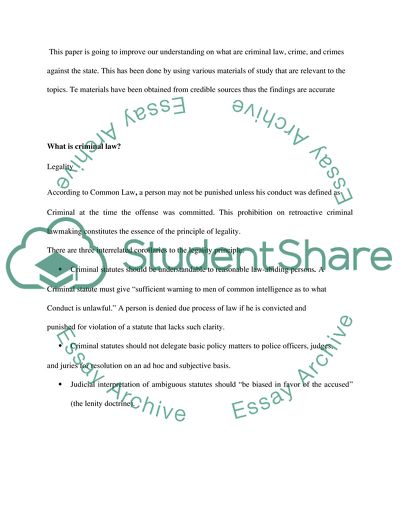Cite this document
(Sources of Criminal Law, Theories of Criminal Punishment Coursework, n.d.)
Sources of Criminal Law, Theories of Criminal Punishment Coursework. Retrieved from https://studentshare.org/law/1593433-pol-basic-criminal-law
Sources of Criminal Law, Theories of Criminal Punishment Coursework. Retrieved from https://studentshare.org/law/1593433-pol-basic-criminal-law
(Sources of Criminal Law, Theories of Criminal Punishment Coursework)
Sources of Criminal Law, Theories of Criminal Punishment Coursework. https://studentshare.org/law/1593433-pol-basic-criminal-law.
Sources of Criminal Law, Theories of Criminal Punishment Coursework. https://studentshare.org/law/1593433-pol-basic-criminal-law.
“Sources of Criminal Law, Theories of Criminal Punishment Coursework”. https://studentshare.org/law/1593433-pol-basic-criminal-law.


